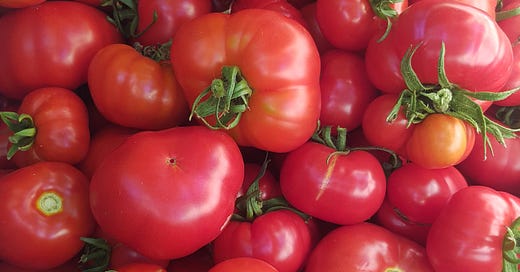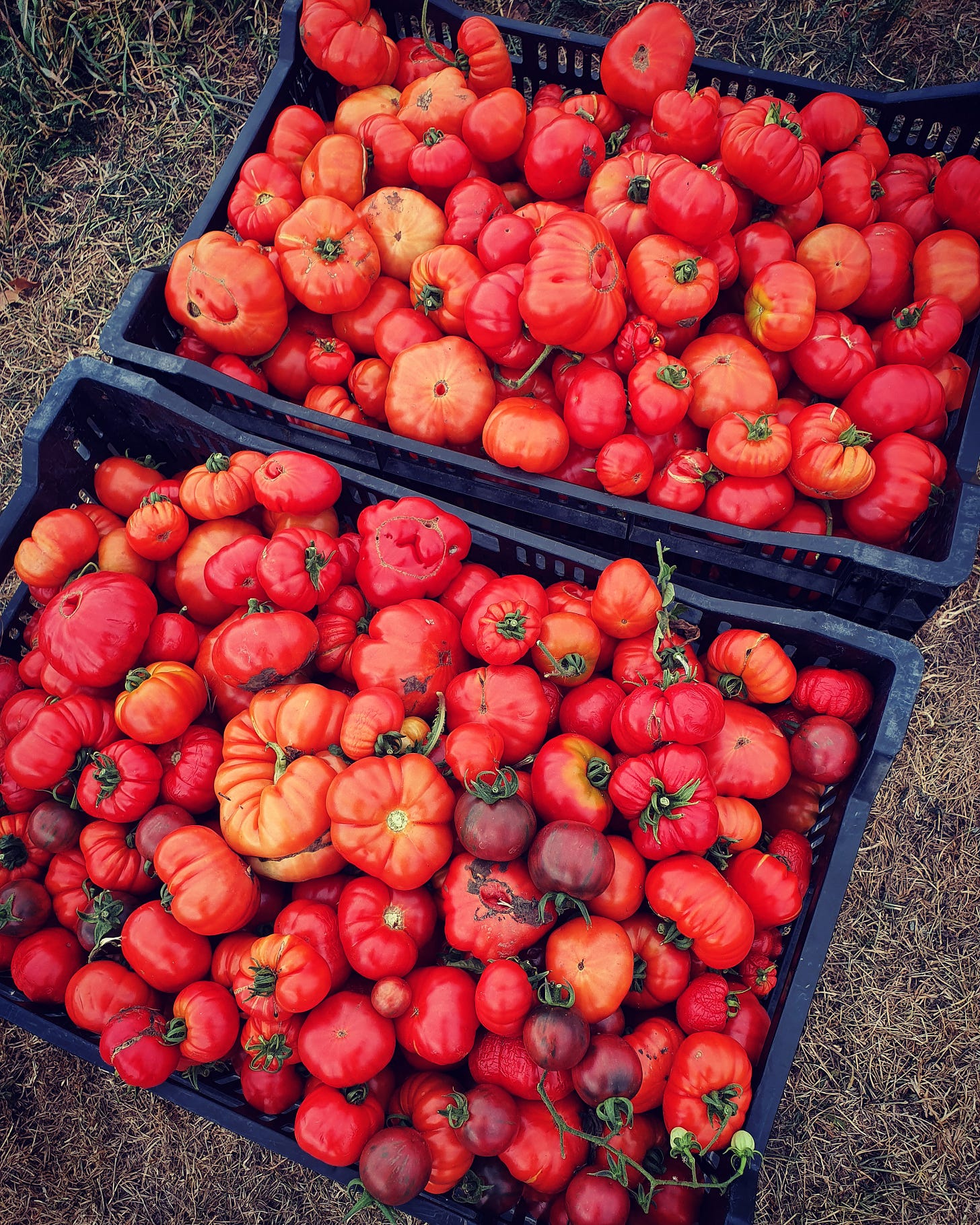Cheviot Tomato Seeds
Our Eat NZ CE Angela Clifford shares the story of the importance of biodiversity of seed through the story of her Cheviot Tomato. A priceless treasure that has become a symbol of The Food Farm.
Although I’ve been asked literally hundreds of times, I’ve never sold Cheviot tomato seeds. These seeds first came into our lives over ten years ago here on The Food Farm. Our friends Michael and Ali hadn’t long moved to Gore Bay to establish Little Owl BD Farm. Like us, they’d come from South Australia, a climate vastly different to North Canterbury.
They’d established a market garden and Michael’s infinite knowledge of vegetables and growing meant he quickly unearthed all the local food stories and history in his new home.
He was given seed from a tomato related to Scoresby Dwarf that had originally come over from South Australia to be grown as a field tomato in our takiwā (region). The serendipity of this South Australian to North Canterbury journey was too much to resist, and both we and Michael took it upon ourselves to keep this now commercially unavailable seed going. We called it ‘Cheviot’ after the closest town to its origin, to acknowledge its whakapapa or heritage.
The Cheviot tomato was not a disappointment. In a good year we can yield close to 700kgs of beautifully delicious fruit from about 150 plants. They’re bush tomatoes so don’t need staking or the laterals removed, and they’re grown outside. Over the years this has become increasingly important as the psyllid bug has arrived, and we can use an insect mesh to cover them, our best tool growing organically. This is much easier when the plants are on the ground rather than being supported by stakes. It’s also a wonderful advantage in a climate that includes the ferocious Nor’West wind.
Each year we select the best plants and save seed from them. This means we now have over a decade of selective breeding, specifically suited to our bioregion. In that decade we’ve had 5 years of drought and 3 years of La Niña which bring moist, rainy conditions to our part of Aotearoa. Despite this wild variability there’s always plants that do better than others. By saving seed we’ve captured this genetic ability to deal with whatever is thrown at them and this is layered on top of the decades of breeding that’s gone before us.
From 1961 to 2014 the number of tomato cultivars (or varieties) in Western Europe has decreased by 78%. This astonishing decrease is a result of the consolidation and globalisation of markets. Tomatoes need to travel great distances without spoiling and like many vegetables are bred for yield and durability rather than flavour or nutrient density.
As Dan Saladino notes when talking about his book ‘Eating to Extinction’ the genetic diversity of seeds often lies with small farmers such as us. While many grow commercial varieties of crops for sale, they’ll save completely different and often better-tasting cultivars for their home table.
We haven’t ever sold the Cheviot Tomato seed because we don’t believe it is ours to do so with. We’re simply the guardians or kaitiaki of this seed, contributing to its breeding along the way. Instead, we’ve swapped it or given it to friends and family and shown others how to raise it as part of our Food Growing Workshops here on The Food Farm.
We know that if we’re the only ones who have this seed, we run the risk of losing it forever. Our priority is those who live in our bioregion, but we have dear friends who we know grow it from Raglan to Canada. We understand the power and importance this seed plays in the future of our health and the biodiversity of our land. It’s a seed that is fundamental to our ability to feed ourselves and our community. Its significance is multitudes the size of the little seed itself.
Dr Jessica Hutchings reiterates this by quoting Dr Vandana Shiva in Jessica’s book Te Mahi Māra Hua Parakore;
“Food sovereignty begins in seed sovereignty… it grows from the land and its biodiversity. Growing food is growing diversity and freedom, it involves rejuvenating the seed and the soil, it rejuvenates culture and community.”
The Cheviot Tomato seed has become a symbol of The Food Farm, and our journey to explore the connection between healthy soil, healthy plants, and healthy people. It thrives because of the biodiversity of the microbes, plants, insects, and animals (including us) on our small farm, and we thrive because of it.
See more from Angela and her family about life on The Food Farm in North Canterbury over on Instagram @thefoodfarmnz.
This is a post in collaboration with #FOODDIVERSITYDAY taking place on Jan 13th in the UK. Learn more here.







